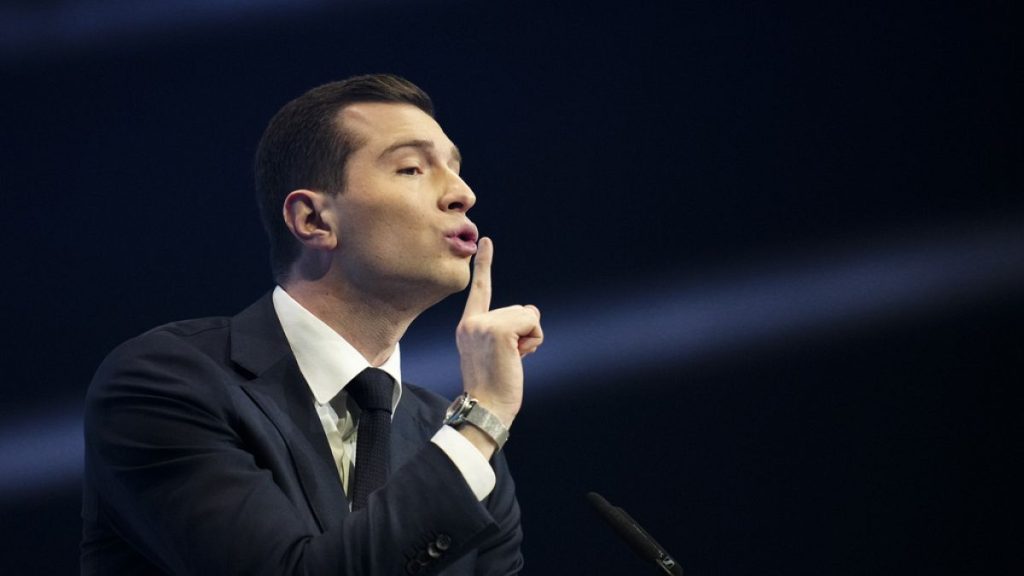The highly anticipated TV debate between French Prime Minister Gabriel Attal and far-right EU candidate Jordan Bardella just two weeks before the European elections saw both parties clash over opposing views. The debate quickly turned heated as accusations were exchanged, particularly on Russia, with Attal accusing Bardella’s party of having alleged links to the Kremlin. The absence of other candidates, such as Valérie Hayer of President Macron’s party Renaissance, led to criticism of the unfair advantage given to the far-right and Macron’s party in the debate. The challenge for Attal and Renaissance was to try and reverse the polling trend, as Bardella’s National Rally party was leading in the polls.
The central theme of the debate was “Do we need more or less Europe?” with Bardella advocating for reform of the EU rather than leaving it entirely. Attal tried to point out contradictions in the National Rally’s EU policies, highlighting the party’s changing positions on issues like the euro. Climate change, immigration, and Ukraine were also key topics during the debate. Both candidates agreed on the importance of fighting climate change, but Bardella criticized Attal’s ambitious green transition investment plan as unrealistic. Immigration policy differences were also stark, with the National Rally proposing restrictions on free movement for non-Europeans and holding a national referendum on the issue.
The debate highlighted the different views on immigration, with Bardella advocating for restrictions on free movement for non-Europeans in the Schengen area, citing security concerns. Attal, on the other hand, defended a more inclusive approach to immigration, denouncing Bardella’s view that foreigners were associated with criminality and terrorism. The issue of the intervention in Ukraine also caused a divide between the two candidates, with Bardella opposing Macron’s proposal to send French troops and rejecting the idea of Ukraine joining the EU. Attal reaffirmed France’s support for Ukraine and Macron’s desire for peaceful resolution in the region.
The absence of certain candidates like Valérie Hayer from President Macron’s Renaissance party led to criticism of the debate format, which was seen as giving an unfair advantage to the far-right and Macron’s party. The head-to-head debate between Attal and Bardella excluded other candidates who were also popular among voters, such as Raphaël Glucksmann of the Socialist Party. Both Attal and Bardella, while popular among younger voters, faced challenges in trying to gain more support from centrists and in reversing electoral trends. The clash between the two candidates highlighted the ongoing debates within French politics regarding the future of the EU, climate change, immigration, and Ukraine, reflecting broader issues and divisions within European politics as a whole.


